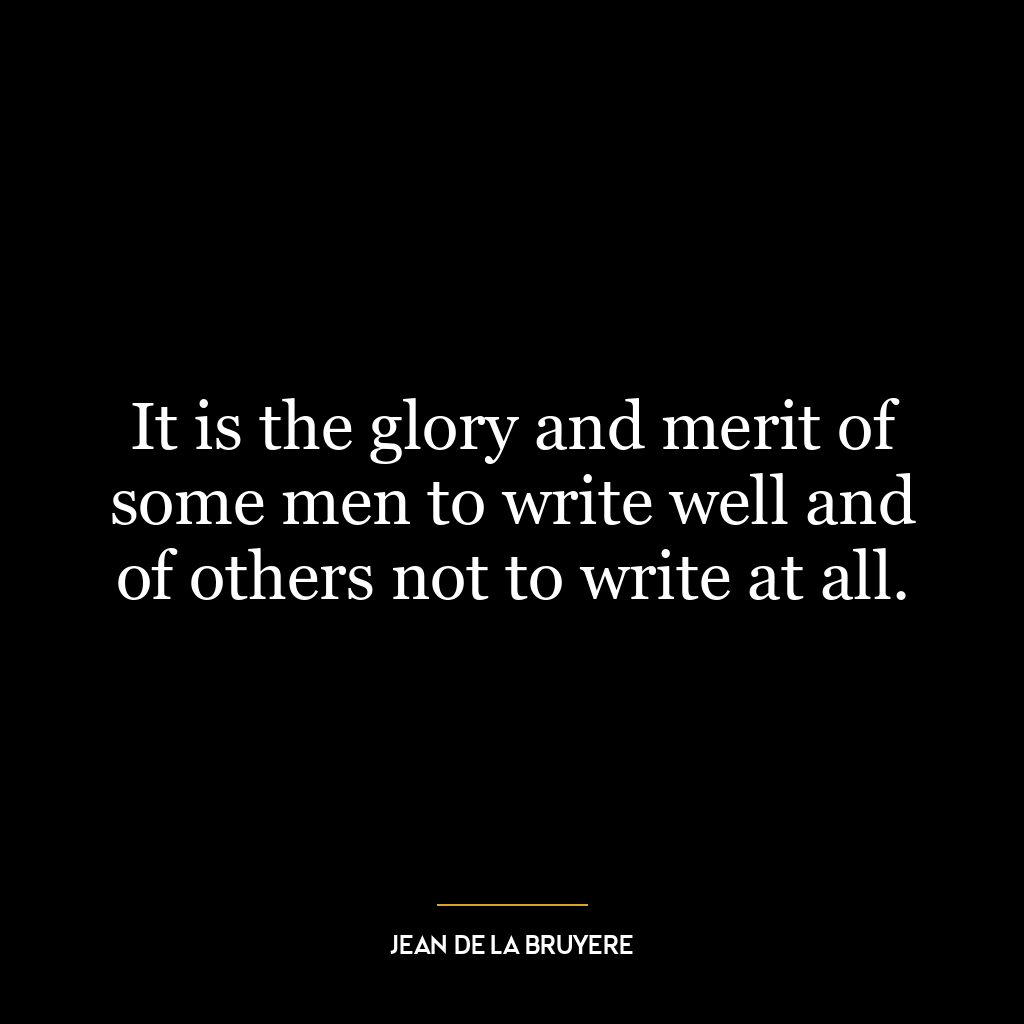This quote suggests that merit, or the quality of being particularly good or worthy, should not be treated as a commodity to be exchanged for rewards. The reason for this is that when merit is linked directly with reward, it can lead to unhealthy competition, conspiracy, and contention. People may become more focused on the reward rather than the intrinsic value of the good deed or the quality of their work. This could lead to dishonesty, jealousy, and even sabotage, as individuals may resort to any means necessary to secure the reward.
The quote encourages us to appreciate merit for its own sake, rather than as a stepping stone to gain rewards. This is a call to foster intrinsic motivation, where actions are driven by internal rewards such as personal satisfaction, self-improvement, or moral obligation, rather than external rewards like money, fame, or power.
In today’s world, this concept can be applied in various fields. In education, for instance, students should be encouraged to learn for the sake of knowledge and personal growth, rather than solely for grades or accolades. In the workplace, employees should be motivated by the value of their work and the personal satisfaction they derive from it, rather than just the salary or promotions.
In terms of personal development, this quote suggests that we should strive to improve ourselves because it’s personally fulfilling, not because we want to impress others or gain some external reward. This approach promotes authenticity and self-awareness, as we are not swayed by external pressures or societal expectations but are guided by our own values and interests. It also fosters resilience, as our motivation and self-esteem are not tied to external validation, but are rooted in our own self-worth and achievements.















